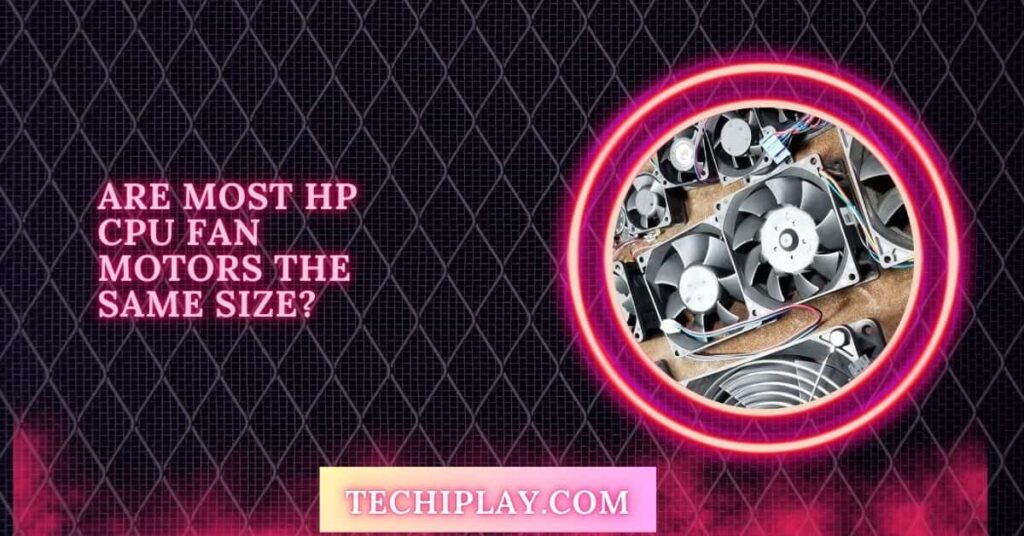No, most HP CPU fan motors vary in size. While many HP CPUs use fans that fit specific sizes, there is no universal standard. Different models may require different fan motor sizes for optimal cooling performance.
In this article, we’ll explore various types of CPU fans used in HP devices, their sizes, and how to choose the right one for your specific model.
Understanding CPU Fans
1. What Is a CPU Fan?
A CPU fan helps cool the processor by moving air over it. Without this fan, your computer could overheat, causing slower performance or damage to internal parts.
2. How CPU Fans Operate
The fan spins faster when the CPU gets hot and slows down when it’s cool. This automatic adjustment helps regulate temperature and keeps your computer running smoothly.
HP Laptop and Desktop Cooling Solutions
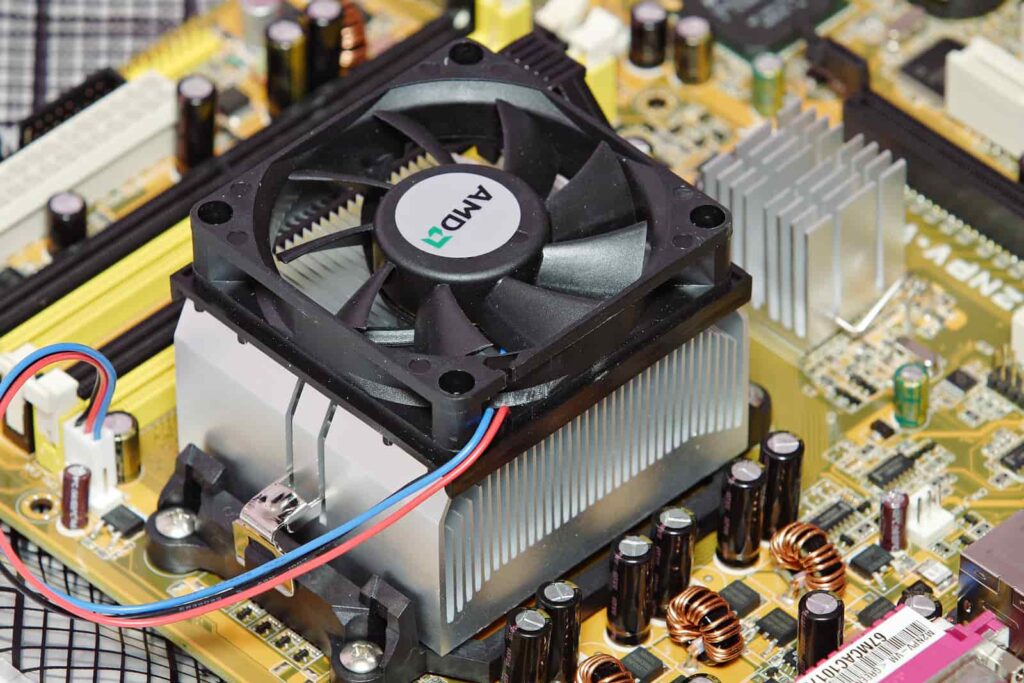
1. HP’s Approach to Cooling Systems
HP focuses on balancing quiet operation and efficient cooling. For laptops, this means compact, low-noise fans, while desktops have more giant fans to handle more heat and higher performance demands.
2. Common Cooling Methods Used in HP Devices
HP devices use active and passive cooling. Active cooling relies on fans, while passive methods use materials like heat sinks to absorb and dissipate heat without moving parts.
Also Read: What Is Vddcr CPU Voltage – Key Facts You Should Know – 2024
Fan Motor Sizes in HP CPUs
1. Are Most HP CPU Fan Motors the Same Size?
No, HP fan motors vary in size. Laptop fans are more minor than desktop fans, and even within the same product line, fan sizes can differ based on model and cooling needs.
2. Standard Sizes of CPU Fan Motors
HP desktop fans are generally between 80mm and 120mm, while laptop fans range from 30mm to 60mm. The right size depends on the specific model and cooling requirements.
Types of Fans Used in HP Computers
1. Types of Fans for HP Laptops
HP laptops usually have small blower fans. These are designed to cool the processor efficiently in a compact space while keeping noise levels low. They are quieter but less potent than desktop fans.
2. Types of Fans for HP Desktops
HP desktops use more giant axial fans, which move more air and cool the CPU more effectively. These fans are essential for handling the higher heat output from more powerful desktop processors during demanding tasks.
Factors Affecting Fan Motor Size
1. Performance Considerations
More giant fans typically provide better cooling performance but may require more power. Smaller fans are quieter but might struggle with heavy workloads. Finding the right balance between cooling efficiency and noise is essential for optimal performance.
2. Space and Design Limitations
Laptops have limited space, so smaller, quieter fans are used to fit inside. Desktops have more room for giant, more efficient fans that can handle more heat, making design limitations crucial in choosing the right fan size.
3. Power Consumption and Noise Levels
More giant fans use more power and may generate more noise, but they are more efficient at cooling. Smaller fans consume less energy and are quieter, but they may struggle to cool the system during heavy tasks.
HP Models with Standardized Fan Sizes
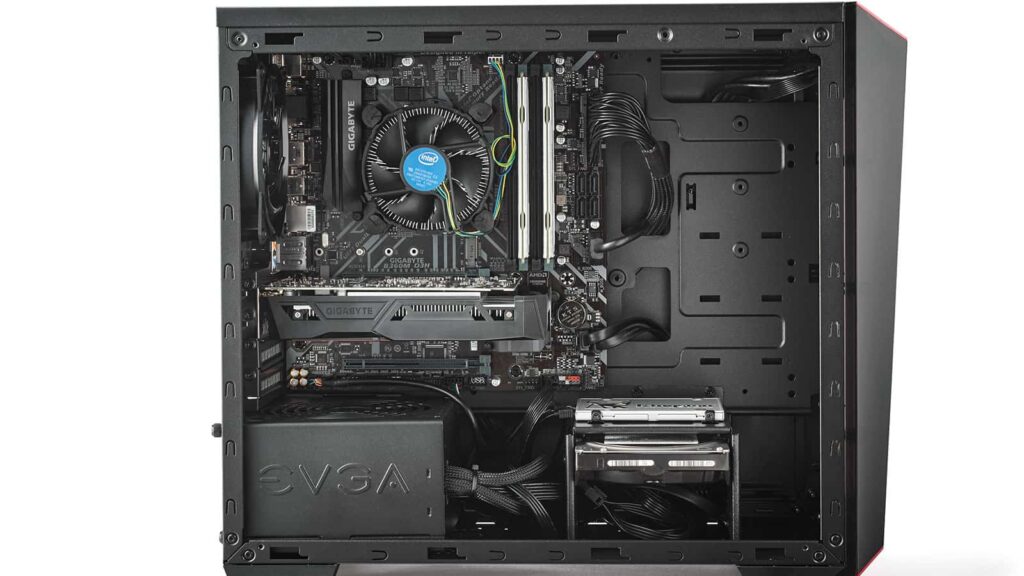
1. Popular HP Models with Consistent Fan Motor Sizes
Popular models like the HP Spectre and Elite series often feature consistent fan sizes, making it easier for users to replace parts. These models are designed for long-term reliability and easy maintenance.
2. When HP Uses Different Sizes Based on Models
HP adjusts fan sizes based on each model’s specific cooling needs. High-performance models with powerful CPUs may require more giant fans, while ultra-thin or budget models use smaller fans to save space and reduce noise.
Also Read: CPU DXE Initialization Is Started – Tips For A Smooth Boot!
Custom vs. Standard Fans
1. Can You Replace an HP Fan with a Different One?
Yes, you can replace an HP fan with a different one, but it must match the size and specifications. Ensure compatibility to avoid performance issues, overheating, or damage. Always check your HP model’s requirements before replacing a fan.
2. Compatibility and Risks
An incompatible fan can lead to poor cooling, increased noise, or system failure. To avoid overheating risks and ensure your computer functions properly after replacing the fan, it’s essential to match the size, power, and connection type.
Choosing the Right Fan for Replacement
1. How to Determine the Right Size
To determine the correct fan size, measure the original fan’s dimensions or check your HP device’s specifications online or in the manual. The size and airflow capacity are essential to ensure they fit correctly and cool your CPU effectively.
2. Where to Find Compatible HP Fan Replacements
Compatible HP fan replacements are available on official HP websites, electronics stores, and online retailers like Amazon. Always look for parts specific to your HP model to ensure proper fit and cooling efficiency.
HP’s Proprietary Designs
1. Unique Fan Designs for Specialized Models
HP’s high-end models, like gaming laptops or workstations, often feature unique fan designs to handle extreme cooling demands. These fans are built to maintain performance under heavy workloads, making them different from standard cooling solutions.
2. How HP’s Custom Cooling Solutions Differ from Competitors
HP’s custom cooling systems focus on quiet operation and efficient heat dissipation, especially in their premium models. Compared to competitors, HP designs fans to maximize airflow while reducing noise, offering a balanced cooling solution.
Must Read: FTPM Will Not Enable In New CPU – Steps To Update Your BIOS
Common Problems with HP Fan Motors
1. Overheating Issues
Your device can overheat if an HP fan motor isn’t working efficiently. This could cause slow performance or even damage internal components. Regular cleaning and ensuring proper airflow can help prevent overheating issues.
2. Noise Complaints
HP fans can sometimes get noisy due to dust buildup, misalignment, or motor wear. If the noise increases over time, cleaning or replacing the fan might be necessary to reduce the disturbance and keep your device running smoothly.
3. Fan Motor Failures
Fan motor failures in HP devices can lead to overheating and shutdowns. If the fan stops working, replace it quickly to avoid damaging your computer’s processor and other components due to insufficient cooling.
How to Maintain HP Fan Motors
1. Cleaning and Maintenance Tips
To clean your HP fan, power down the device and blow out dust with compressed air. For deeper cleaning, you should open the case carefully. Clean fans help prevent overheating and extend the motor’s life.
2. Ensuring Longevity of the CPU Fan Motor
You can extend the life of your HP CPU fan motor by keeping it clean, ensuring good airflow, and avoiding overworking your computer. Regular maintenance and proper ventilation can help your fan last longer and work more efficiently.
Replacing an HP Fan Motor
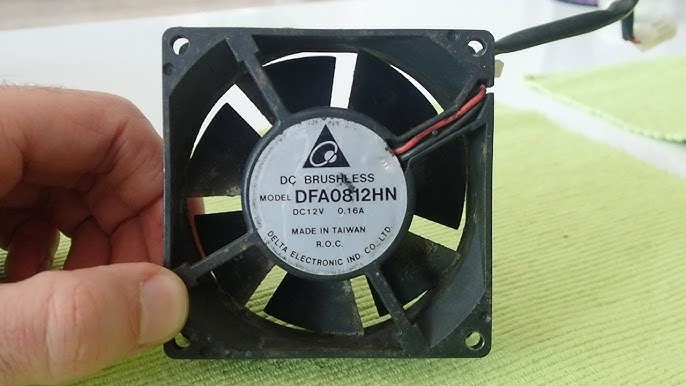
1. Step-by-Step Guide for Replacing a CPU Fan in an HP Laptop
- Power off the laptop and unplug it.
- Remove the back cover.
- Disconnect and remove the old fan.
- Install the new fan, ensuring a proper fit.
- Reassemble and test the fan.
2. Desktop Fan Replacement Procedure
- Power down the desktop and unplug it.
- Open the case and locate the fan.
- Remove the old fan and install the new one.
- Close the case and power on the desktop.
Third-Party Cooling Solutions
1. Using Third-Party Fans with HP Devices
You can use third-party fans with HP devices, but ensure they match your model’s requirements. Some aftermarket fans might offer better cooling or quieter operation, but compatibility is critical to ensuring they work correctly in your HP system.
2. Pros and Cons of Aftermarket Fans
Aftermarket fans can be cheaper, quieter, or more potent than HP originals. However, they might fit differently or offer different reliability. Always weigh the benefits of price and performance against the risk of compatibility issues.
Can You Replace HP Fan Motors?
Yes, you can replace HP fan motors if they fail. Make sure to choose a compatible replacement for your specific model. This will help maintain your computer’s cooling efficiency and performance.
Are All Cpu Coolers The Same Size Over The Cpu?
No, CPU coolers come in different sizes and shapes. Before purchasing a cooler, it’s important to check its dimensions and compatibility with your CPU socket to ensure a proper fit.
Must Read: Windows XP CPU Support List – Find Your Ideal Processor!
How Many Horsepower Is An Electric Fan Motor?
Most electric fan motors are rated between 1/20 to 1/2 horsepower. The exact horsepower depends on the fan’s size and intended use. Smaller fans generally have lower horsepower ratings.
Is All PC Fan And CPU Fan Same Size?
No, not all PC and CPU fans are the same size. They come in various dimensions and mounting styles. It’s essential to check compatibility before replacing or upgrading any fan in your system.
How Far Can I Push A 12v Fan?
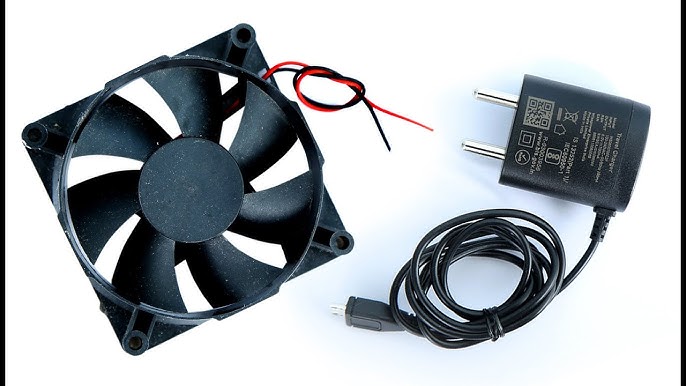
You can typically push a 12V fan to its rated specifications, but moving it beyond that can cause overheating and damage. Always follow the manufacturer’s guidelines to ensure optimal performance and longevity.
Does An HP Laptop’s Inner Fan Differ From Model To Model?
Yes, HP laptop fans differ by model. Each design accounts for the laptop’s size and cooling needs. Always check your specific model when replacing or upgrading the fan for the best performance.
Is There Any Leeway In Condenser Fan Motor Specs?
There can be some leeway in condenser fan motor specs, like voltage and horsepower, but it’s best to stick to manufacturer recommendations. Using the correct specs ensures efficiency and prevents potential damage to the unit.
FAQs
1. What is the most common CPU fan size?
The most common CPU fan size is 120mm. It fits many standard cases and provides good cooling performance.
2. Are CPU cooling fans universal?
No, CPU cooling fans are not universal. Different CPUs and cases require specific fan sizes and mounting styles.
3. Is it better to have a higher CPU fan speed?
Higher CPU fan speed can improve cooling but may create more noise. Balance performance and noise for comfort.
4. How do I know what CPU fan will fit?
Check your CPU socket type and case specifications. Online manuals or manufacturer websites can help you find compatible fans.
5. Do all CPU fans fit all CPUs?
No, not all CPU fans fit all CPUs. Compatibility depends on socket type, size, and mounting mechanisms.
6. Are most CPU fans compatible?
Most CPU fans are compatible with typical setups, but always check specifications to ensure proper fit and performance.
7. How do I know what fans fit my PC?
Check your PC case specifications and motherboard details. This will help you choose the right fans for your setup.
8. Does it matter what CPU fan I get?
Yes, it matters. The right CPU fan ensures effective cooling and fits your system’s size and design requirements.
9. Are all PC fans interchangeable?
Not all PC fans are interchangeable. Sizes, connector types, and mounting systems vary, so check compatibility before swapping.
10. Can I replace my CPU fan with any fan?
No, you cannot replace your CPU fan with just any fan. Make sure the new fan is compatible with your CPU and system.
Conclusion
In summary, HP CPU fan motors come in various sizes, tailored to different models and cooling needs. Understanding your specific device’s requirements is crucial for optimal performance. Choosing the right fan ensures efficient cooling, longevity, and system stability.

